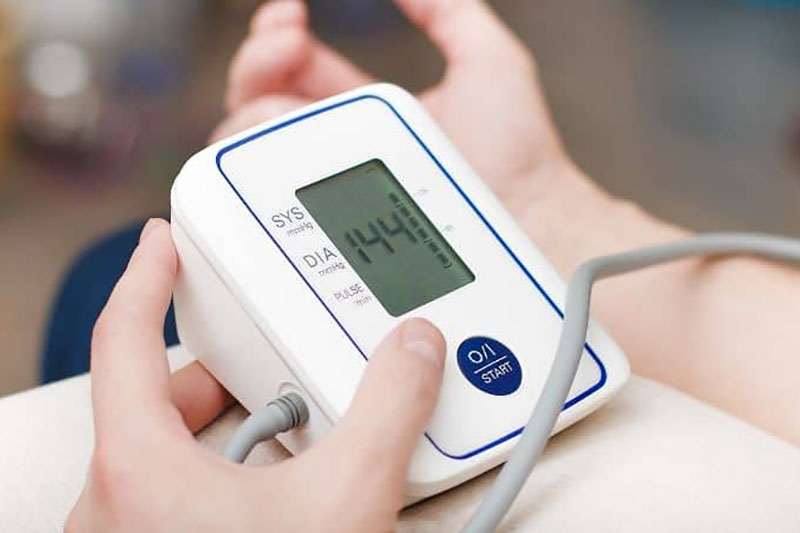Hypertension is not only a condition for adults but it can also affect children, kids and even infants. When you see high blood pressure in children, the basic cause is either heart or Kidney. But it has been seen that children do have high blood pressure even though they have no heart or kidney problem but there’s a family history of high blood pressure and an unhealthy lifestyle – a bad diet, excess weight, stress, and insufficient physical activity.
Though it is estimated that 4.5% of kids have high blood pressure. High blood pressure is very common among adults but it is also increasing in children these days, a trend that researchers link to the increase in childhood obesity.
The only way to know whether your kid has hypertension is to get it checked regularly. Doctors usually start measuring blood pressure during routine check-ups when a child is about 3 years old.If it remains untreated, high blood pressure can eventually lead to damage to the heart, brain, kidneys, and eyes. But if it’s caught early, monitored, and treated, a child with high blood pressure can have an active, normal life.
Long-Term Complications of High Blood Pressure
When a kid has high blood pressure, the heart and arteries have a much heavier workload. Heart has to work against great force, The heart must pump harder and the arteries are under greater strain as they carry blood. If high blood pressure continues for a long time, the heart and arteries may no longer work as well as they should. Having high blood pressure puts a child at a higher risk for stroke TIA, CVA, heart attack, kidney failure, loss of vision, and atherosclerosis (hardening of the arteries).
Though child may not show symptoms of high blood pressure, it still affects the body and puts the child at risk for those long-term health problems. In rare cases, severe hypertension can cause headaches, dizziness, nosebleeds, heart palpitations, visual changes and nausea. If your child has severe high blood pressure and experiences any of these symptoms, contact your doctor immediately.
When you go to a doctor with your children, It’s not unusual for a first blood pressure reading to be high because the child is nervous, so the doctor will likely take three or four readings – and use an average to determine whether your child has high blood pressure or is at risk for developing hypertension.
Causes of High Blood Pressure
The causes of high blood pressure differ, depending on the age of the child. The younger the child, the more likely the high blood pressure is due to some other condition. High blood pressure among infants most commonly occurs in premature babies. Some newborns have high blood pressure because of problems with the heart, or vascular system, kidneys and lungs. Often, these problems are due to bronchopulmonary dysplasia, an immaturity of the lungs in premature babies, or problems of vessels like coarctation of the aorta, a narrowing of part of the major blood vessel that transports blood away from the heart to the body parts. Among school-age kids and teens, hypertension is usually linked to obesity. Over weight is very common among school age children these days. In some cases it’s due to a problem with the kidneys, although other conditions – like abnormalities in the blood vessels and hormonal disorders – can also be responsible. Some medications (such as steroids or oral contraceptives) can lead to high blood pressure, as can over consumption of alcohol and illegal drugs.
Diagnosing Hypertension in Children
As high blood pressure usually doesn’t produce any symptoms, diagnosing the condition in children can be difficult. The only reliable way to find out if your kid has high blood pressure is to have it regularly measured at routine check ups. So it’s important not to miss those appointments, particularly if your child is obese or if there’s a family history of hypertension. There is also a new test called ambulatory blood pressure monitoring in which a child wears a blood pressure cuff all day. Some consider it more accurate than blood pressure tests in the doctor’s office because the child is less likely to be affected by any stress from visiting the doctor and blood pressure is monitored over a considerable period.
Treating High Blood Pressure
If an underlying illness is causing hypertension, treating that illness may be enough to get the blood pressure back to normal levels. For example treating coarctation of aorta can significantly improve blood pressure. If there’s no underlying illness, your child’s doctor will try to control Blood pressure with natural measures and he may recommend weight loss, increased intake of fruits and vegetables, decreased salt intake, increased exercise, and even relaxation techniques. Kids with hypertension should also quit or never start smoking, which can worsen the long-term associated heart problems as smoking is one of major risk factor for heart attack. Most doctors prefer not to prescribe medication for children with mild hypertension. However, in cases in which lifestyle changes do not improve the condition, then doctor may give medication .
Doing Exercise and participation in organized sports is encouraged for all children whose hypertension is not severe or is well-controlled. In fact, staying fit is the key to both weight and blood pressure control. If your kid is overweight, an ongoing weight-loss program monitored by your child’s doctor and a minimum of 30 minutes of aerobic exercise every day may play very important role in controlling blood pressure. Kids who have severe hypertension should not, however, participate in weight- and power-lifting, bodybuilding, or strength training until their blood pressure is under control and a doctor OKs it.
Remember, earlier you get high blood pressure, earlier you will face its complications. So try to control your blood pressure with in normal limits to stay healthy and enjoy normal life.


